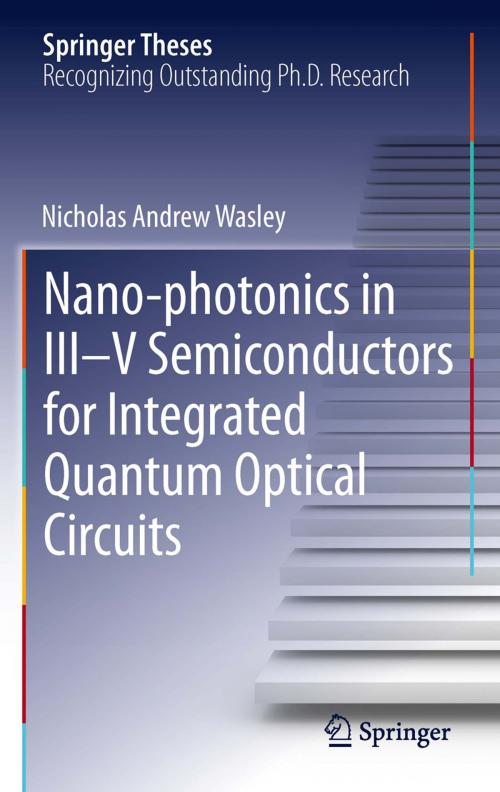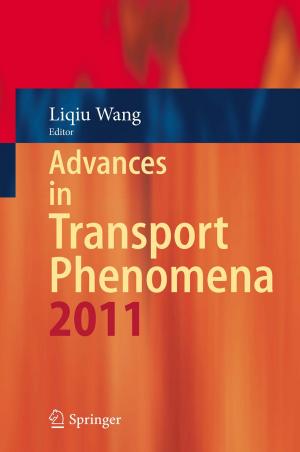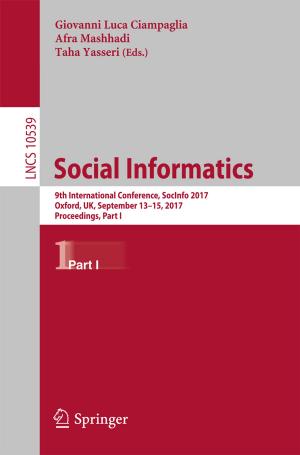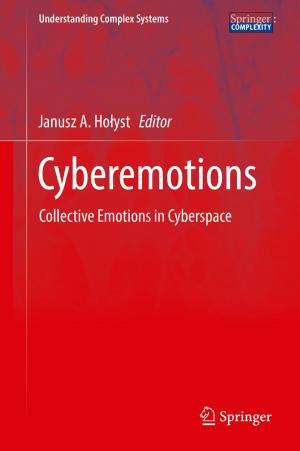Nano-photonics in III-V Semiconductors for Integrated Quantum Optical Circuits
Nonfiction, Science & Nature, Technology, Electronics, Semiconductors, Science, Physics, Optics| Author: | Nicholas Andrew Wasley | ISBN: | 9783319015149 |
| Publisher: | Springer International Publishing | Publication: | September 5, 2013 |
| Imprint: | Springer | Language: | English |
| Author: | Nicholas Andrew Wasley |
| ISBN: | 9783319015149 |
| Publisher: | Springer International Publishing |
| Publication: | September 5, 2013 |
| Imprint: | Springer |
| Language: | English |
This thesis breaks new ground in the physics of photonic circuits for quantum optical applications. The photonic circuits are based either on ridge waveguides or photonic crystals, with embedded quantum dots providing the single qubit, quantum optical emitters. The highlight of the thesis is the first demonstration of a spin-photon interface using an all-waveguide geometry, a vital component of a quantum optical circuit, based on deterministic single photon emission from a single quantum dot. The work makes a further important contribution to the field by demonstrating the effects and limitations that inevitable disorder places on photon propagation in photonic crystal waveguides, a further key component of quantum optical circuits. Overall the thesis offers a number of highly novel contributions to the field; those on chip circuits may prove to be the only means of scaling up the highly promising quantum-dot-based quantum information technology.
This thesis breaks new ground in the physics of photonic circuits for quantum optical applications. The photonic circuits are based either on ridge waveguides or photonic crystals, with embedded quantum dots providing the single qubit, quantum optical emitters. The highlight of the thesis is the first demonstration of a spin-photon interface using an all-waveguide geometry, a vital component of a quantum optical circuit, based on deterministic single photon emission from a single quantum dot. The work makes a further important contribution to the field by demonstrating the effects and limitations that inevitable disorder places on photon propagation in photonic crystal waveguides, a further key component of quantum optical circuits. Overall the thesis offers a number of highly novel contributions to the field; those on chip circuits may prove to be the only means of scaling up the highly promising quantum-dot-based quantum information technology.















